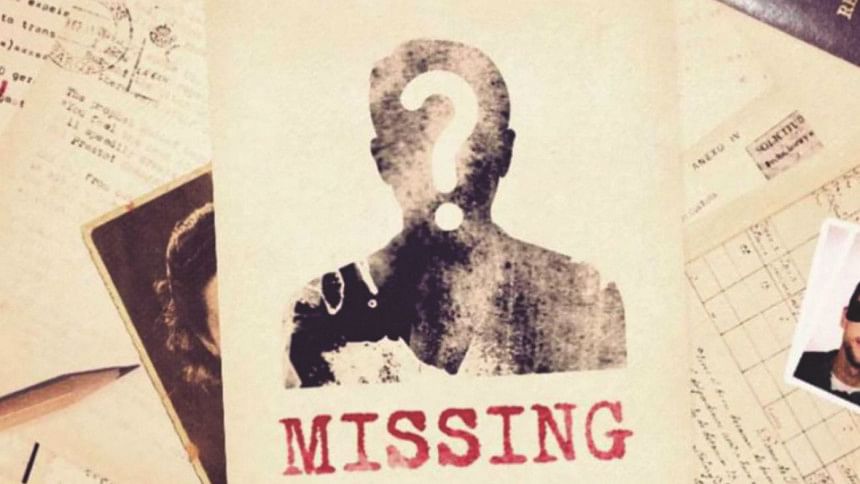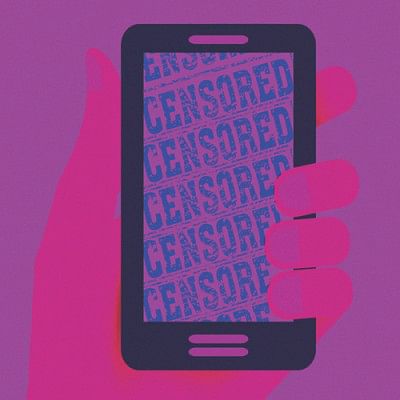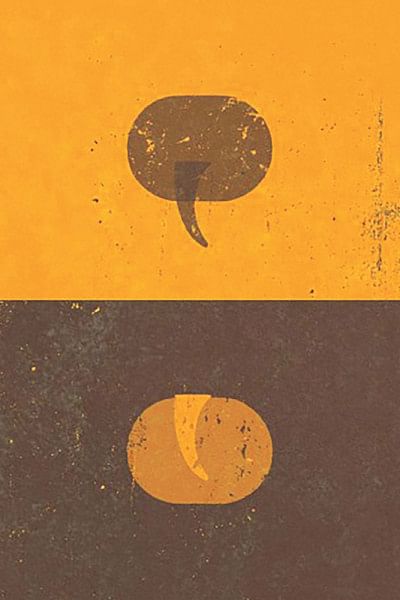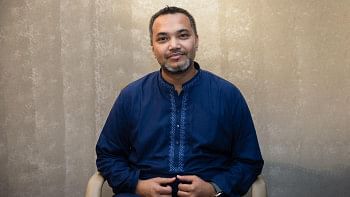Machinations of a fearsome state

2017 has just ended. The impending closure gives citizens an opportunity to take stock of the achievements and challenges they faced during the course of the year. While the state narratives of digitalisation and development and the concomitant effort to promote the catchphrase "unnoyoner gonotontro" (democracy for development) hold sway, a dispassionate analysis of the relationship between the state and the citizens leads one to believe that a sense of fear has gripped the polity, officially dubbed as the People's Republic.
It is disconcerting that fear as an instrument of control persists when a parliamentary system of government is in existence and those at the helm routinely reiterate their commitments to uphold the much cherished spirit of the liberation war.
Fear among the citizenry is implanted in many ways. Included among them are (a) possibility of extrajudicial killings and disappearances, (b) unrestrained use of force and violation of laws by the law enforcing agencies with near complete impunity, (c) enforcement of ill defined freedom curbing laws, (d) mobilisation of state institutions with concealed motives, (e) levelling of false insinuation against individuals by both the powerful and the sundry and, (f) installing surveillance apparatuses.
Extrajudicial killing and enforced disappearance constitute the single most important source of fear. What began as an operation to cleanse society of criminals, the lesser mortals bereft of the right to access due procedure, under the first BNP government of Khaleda Zia, have by now become a much abused tool to spread fear among other groups including those who hold dissenting views and are considered politically undesirable. In late 2017 the spate of involuntary disappearance of businessmen, academics, researchers and even of a retired diplomat, has given rise to deep consternation among the ordinary people.

Odhikar sources inform that until November 2017 as many as 144 people were extra-judicially killed and 80 were made to involuntarily disappear. In almost all cases relatives of victims or other witnesses claimed that people presenting themselves as members of state agencies took away the victims to unknown places, often in clearly marked vehicles. The reluctance of the police authorities to accept complaints, duly investigate cases if at all those are entertained, and cooperate with the members of victims’ families, are indications of the state's reticence to deal with this thorny issue. The matter gets further compounded when the home minister claims that in such cases the victims choose to hide to escape arrest for their misdeeds and to embarrass the administration. Right activists have felt that the November 23 statement of the head of government in the parliament that cases of enforced disappearance were being recorded in developed countries too, not just in Bangladesh, is an indirect acknowledgement of the reality of enforced disappearance in the country and may appear to be an indirect justification.
The unrestraint and disproportionate use of force by the members of law enforcement agencies is another source of fear. This has been more so for those belonging to opposition political parties and their front organisations. A large number of instances of police excesses on opposition rallies and demonstrations have been recorded during the year. Shooting in the legs of political activists in close range has also been seen in instances. Observers believe that reluctance of concerned authorities to take disciplinary action against the errant members of agencies, act as impunity. Disproportionate and unrestraint use of force deter individuals to organise collectively and articulate their alternative views before the broader populace. The fear of state repression stunts the democratic contestation of pluralist views.
The political opposition disproportionately suffers from the fear psychosis. Denial of democratic space is accompanied by instituting cases against the members of opposition parties and their affiliate organisations. Often it is those activists who are rounded up for committing criminal offences for charges that are earlier levelled against a number of "unknown people" when the offenses were committed. Increased politicisation and parochialisation of the security forces, erosion of professionalism, and lack of accountability—all have contributed to a condition where individuals belonging to opposition parties appear to be institutionally made to endure physical and mental harm.

The culture of denial of wrong doing has encouraged errant members of law enforcement agencies to harass, detain and torture people in defiance of the law. Apart from activists of the opposition political parties, ordinary people, madrasa students, women and citizens belonging to ethnic minority communities have become victims.
Quite a few times during the year media have carried reports and images of ruling party activists publicly brandishing lethal weapons to intimidate the opposition. No meaningful action has been taken as follow up to those reports. Often buoyed by such inaction of the law enforcement agencies the party apparatchiks have also engaged in extortion, manipulation of tender bids, land grabbing and violence in educational institutions.
Another worrisome development is the mid-February government initiative to withdraw 206 cases, including 34 cases of murder perpetrated by ruling party activists, under the pretext that those were "politically motivated". Among them, more than 150 cases were filed during the two consecutive terms of the Awami League regime. Most of the plaintiffs of such cases were various institutions of the government. Apart from murder cases, there were cases relating to crimes such asrape, destruction of property, bribing, stealing from government funds, theft, robbery, extortion, black-marketeering, kidnapping, committing fraud, bombing and possessing, carrying and using illegal arms. Ministers and members of parliament have given Demand Orders to the Ministry of Home Affairs for the removal of these cases. This single act committed at a time when the nation is gearing up for the next general election, if not anything else, is the apt manifestation of the degree of earnestness of the government in upholding rule of law, and, perhaps also its desperation.
Print, electronic and the social media all appear to be bearing the brunt of intolerance of criticism of the government and individuals in positions of authority. Critical, cogent and honest journalism has given way to frivolity, ineptitude and sycophancy—thanks to the misapplication of provisions of "black laws" such as the Section 57 of the Information and Communication Technology Act, 2006.
There has been a gradual erosion of space for exercising the much-cherished freedom of expression. This is reflected in Bangladesh's ranking (146th out of 180 states) in the World Press Freedom Index prepared by the Reporters without Frontiers in 2017. Its position is lower than the neighbours, Bhutan (84), Nepal (100), India (136) and Pakistan (139). Closure of 26 news sites in 2016 by the regulating authority, instituting a number of cases against journalists and “statements expressing hostility towards the media” were cited to be the reasons for the poor ranking. Such adverse environment gives rise to situation of self censorship, a scenario reminiscent of the days of military dictatorships. Until November, 29 people were arrested under the ICT Act, 2006.
The absence of law for regulating the electronic media provides ample scope for the state to act arbitrarily against almost two dozens of private television channels. The current government has summarily blocked telecast of a few channels. Critics allege it was instrumental in changing ownership of one or two others. Grave concerns have been expressed about a few provisions of the proposed broadcasting policy that are likely to give the state unfettered control over the channels. In fact, the high ups in the administration have been quite explicit that the government has a right to secure favourable treatment from the channels that secured licenses during its tenure. It's time to pay the piper.
The ICT Act with its opaque clauses (leaving scope for gross abuse) and provisions that allow authorities to arrest without warrant, not grant bail and stiff prison sentence between seven to 14 years has been dubbed as a draconian law. Cyber Tribunal sources inform that this law has come in handy disproportionately to those in positions of authority or in the ruling party to take their critics to task. Under such circumstances, the social media instead of becoming a site of vibrant debate advancing democracy and pluralism has increasingly become weak, pliant and conformist.
Threats and intimidation of journalists across the country has become almost a routine matter. These actions become more nerve-wrecking in a country where extrajudicial killings and disappearances continue unabated. Slapping 83 cases for defamation and sedition across different parts of the country against the editor of a leading English daily epitomises the depth of the problem. Filing defamation cases against senior journalists and leading public figures, who become target of government's ire, has become the hallmark of the cheerleaders of the regime.
The state also resorts to a number of other laws with stiff provisions to quell dissent. Included among them are the Special Powers Act, the Anti-terrorism Act, sedition, defamation and contempt of court provisions of the penal code and the Foreign Donations Act. All these laws are used or have the potential to curtail criticism of the government, severely restricting freedom of expression.
Along with taking recourse to stringent provisions of laws fear among active citizens is instilled through mobilising state institutions such as the taxation department and the Anti-Corruption Commission. The episode of harassing a distinguished economist affiliated to a premier think-tank after his criticism of the government's economic policies in all likelihood has dampened the spirit of others to engage in such cerebral misadventure.
Character assassination through false insinuation is another method to implant fear on self respecting conscientious citizens. Sentiments of the party faithful are whipped up without providing any shred of evidence by their party leadership and their cohorts in the intelligentsia through unfair and distorted statements. On occasions in their tirade against the concerned individuals, MPs and ministers abuse their parliamentary privilege. Those in the receiving end (that include editors, academicians, eminent civil society activists and even a Nobel laureate) have little recourse against such unfair and reprehensible acts.
Erosion of privacy is yet another source of fear. Over the years, on ground of national security the government has installed equipment for mobile phone, email and social network surveillance to increase control over the users' telephonic or online communications. In November 2017 the Cabinet approved plan to purchase advanced wi-fi interception system to monitor Twitter, Skype and Facebook accounts at a cost of Tk. 38.5 crores through direct purchase method. Ostensibly the equipment is procured to conduct lawful interception to help intelligence and law enforcement agencies ensure state security. But given the state's proclivity to undermine fundamental rights of the people, fear is pervasive among the citizenry that those equipment will be improperly used to monitor dissidents and the members of political opposition.
The above scenario presents the grim reality of the national security state that Bangladesh has transformed into today. It also identifies various methods that the alienated and the insecure ruling elite mobilises to stifle dissent and free thinking. Such act is an affront to the principles of political pluralism and freedom of expression that are integral to the much celebrated Bangladesh's great spirit of war of liberation.
C R Abrar teaches International Relations at the University of Dhaka.

 For all latest news, follow The Daily Star's Google News channel.
For all latest news, follow The Daily Star's Google News channel. 



Comments